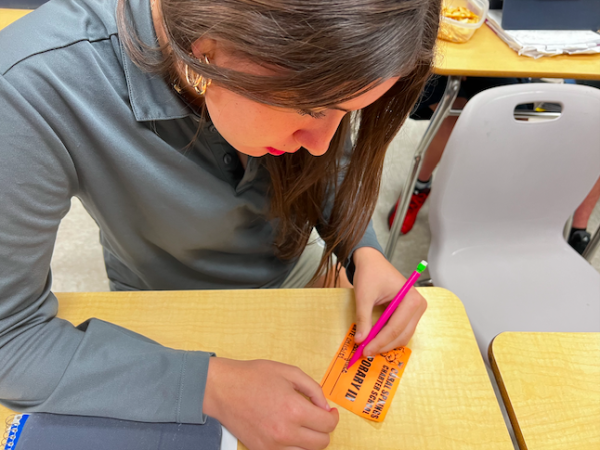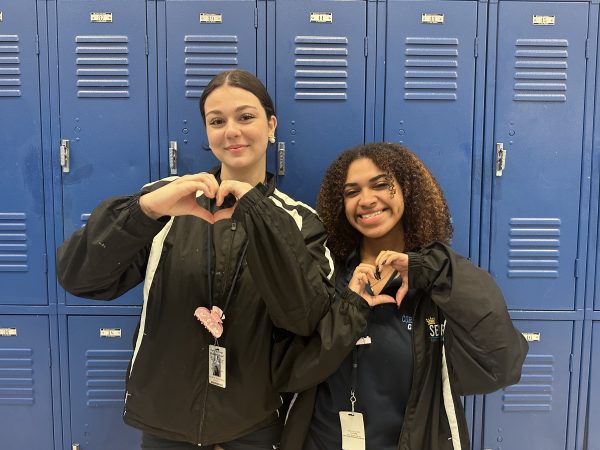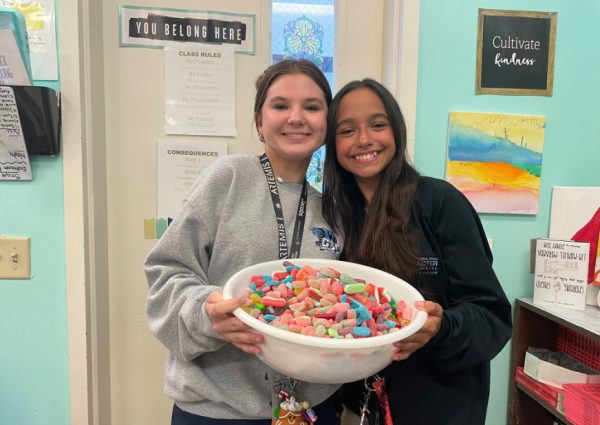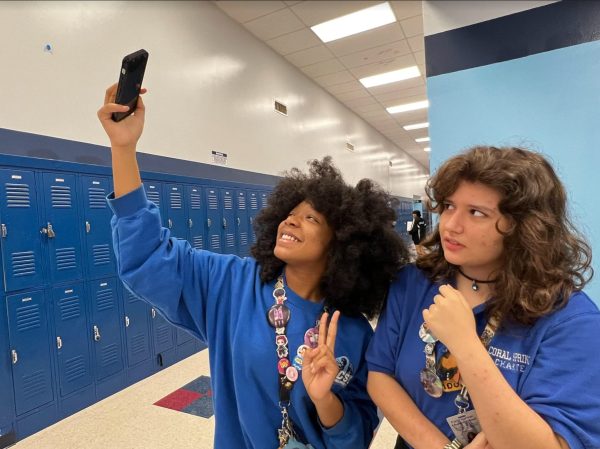A Food Insecurity Discussion for Upcoming College Freshman
The Unspoken Issue
Everyone knows or has at least heard those stories of people living through college off of microwaved ramen noodles and sugary sodas. Despite the comedic coat of these stories what lies underneath is an impending issue amongst college and university campuses: Food Insecurity.
Food Insecurity is an issue defined as being measured by the ‘affordability of food’ mainly impacting college and university students but knows no bounds as it [food insecurity] affects impoverished families and persons with minimum to low income wage jobs. The Youtube video, How College Students Spend $100 on Groceries, produced by the channel The Cut on November 13th, 2019, slightly touched base on this subject.
The disruptions caused by food insecurity amounts to an array of unwanted issues for college students. According to The Conversation article, Pandemic threatens food insecurity for many college students, “It [food insecurity] can affect academic performance and sleep quality. It can also lead to poor mental and physical health outcomes for college students…resulting in disrupted eating patterns if there is not enough food or the variety or quality of what someone eats is low.”
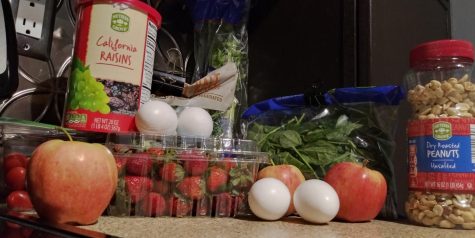
Healthy Diet, Healthy Mind
To explore the effects of maintaining a poor diet, one of the key aspects with Food Insecurity, on students, we spoke with Health Department teacher, Coach Charles Thompson, one of CSCS’s High School teachers. He agrees that the issue of Food Insecurity is to be faced with in college and has “obviously worsened.”
Contrary to the long lasting education and knowledge that college can invoke, surviving off of dry cereal and Instant Ramen for meals during it [college] can also produce negative, near severe outcomes. Athletic Trainer and HOSA Advisor, Mr. Thompson agrees. “As far as college students are concerned, nutrition in general is an issue,” said Coach Thompson, “Foods that are considered to be unhealthy usually have a few benefits: it’s cheap, convenient, and per dollar provides a lot of calories (essential for survival).”
Seniors agreed with the convenience of ‘junk foods’ and unhealthy meals in the [later mentioned] Senior Food Insecurity Google Survey and how it seems to be the easier choice in an already stressful situation. “Being in college is already so expensive and to pay for meals daily just to be able to eat is already more costly,” said one senior, “On top of that, the junk food is what is more cheap so students tend to choose that option because that’s all they can afford and the healthier food that is better for them is more costly and then they end up not eating well and changing their diet.”
Despite the few perks in ‘high calorie foods’ as Coach Thompson puts it, such ingestion of highly contracted sodium/sugar-based diets, possess overcompensating quirks. “High sodium diets have been linked to heart diseases, while high sugar diets can lead to Type 2 diabetes,” said Coach Thompson, “Of course, it would be ideal to eat lean proteins, unprocessed foods, and whole fruits and vegetables.” BBC Food article, Can Food Improve Your Exam Performance, supports this stating that, “Eating a balanced diet can help you focus and avoid illness,” whilst admitting that not one single food may offer you all the necessary nutritions, suggests an array of “balanced Omega-3 fats, fibre packed vegetables, vitamin C enriched fruits and blood sugar leveling whole grains.”
Coach Thompson also suggested some of his own, healthy and affordable alternatives for students to enjoy during semesters. “Choose foods that have healthy protein and fat,” said Coach Thompson, “For example, you can buy a 2-pound container of plain greek yogurt (usually cheaper than individual servings). Mix fresh berries and granola. This can be a snack or a light breakfast.”
Quick and healthy meals to grab on the go for college students is highly recommended as Coach Thompson explains how to easily whip up another delicious and nutritious snack. “Another common but simple foods in college are peanut butter and jelly sandwiches (preferred with low sugar jelly and whole wheat bread) and black beans and rice,” said Coach Thompson, “Both of which provide all of the essential amino acids that you would need for the day.”
Amongst the delicious options, Coach Thompson offered quicks tips to aid students in developing skills in eating healthier. “Buying fresh produce that is in-season helps keep costs down,” said Coach Thompson, “As far as convenience is concerned, plans meals ahead so you know what to buy…Cook and prepare the meals ahead of time so you have it ready to go when need it…Learn what the nutrition labels mean.” All of these helpful recommendations may guide seniors to becoming a ‘better consumer.’
A Financial COVID Pang
Many seniors are entering an unknown world in the middle of a global pandemic where money is already a straining issue. Juggling between education and COVID related stress is a spine shivering experience all have felt in the past year. Yet, that pressure may increase upon upcoming college students as our word remains COVID enwrapped and Food Insecurity a still impending issue.
Georgetown University article published during the pandemic on June 26th, 2020, COVID-19 intensifying college students’ housing, food insecurity, conducted their own survey, alongside ‘The Hope Center for College, Community, and Justice, to explore campus grounds on this issue and found that a “forty-four percent of students at two-year colleges and 38 percent of students at four-year colleges said they were food-insecure in the 30 days prior to the survey.” This new shed of research demonstrated that young adults enrolled in universities and colleges had been severely impacted from the pandemic’s constriction on pay hours [jobs] and classrooms.
The issue of food insecurity had always been a villain behind closed curtains amongst college students before any pandemic in the U.S. The Conversation article, Pandemic threatens food insecurity for many college students, supports this point, stating “historically, estimates of food insecurity among college students have ranged from 10% to 75% according to 50 studies from U.S. academic institutions carried out from 2009 to before the COVID-19 pandemic.”
The many negatives of food insecurity had long been affecting university and college students and now the pressure has increased with an uncertain pandemic rocking an already unknown world for seniors.
Senior Student Opinion
Despite its prominence as an adversity towards college students, a majority of Coral Springs Charter Seniors reported never having heard of the subject before in an anonymous google survey hosted to investigate the readiness of the high school students affront this issue. On the days of April 16th and April 19th, 2021, 33 of CSCS Senior students were asked a series of questions surrounding the topic of Food Insecurity. The responses received differed but in the end, seemed to collectively worry for the future.
On the core question of whether or not Food Insecurity was an issue seniors should ponder about, the majority, 81.8 %, was for Yes. Many opinionated even went on to say, on the topic of opinions or thoughts on the issue, “I think every student should be aware of this early in High School so they can prepare for it,” and “It [food insecurity] should be talked about more, it’s often overlooked entirely.” While the remaining few seemed to be caught on the fence of its importance to soon-to-graduate high school students.
When asked if Seniors have considered this issue for themselves, the split was seen between a ruling 51.5%, No, and a 45.5% Yes. “I work a minimum wage job and have to pay thousands of dollars for college. I worry I will not have enough money for daily things,” stated one senior, expressing a minoring, yet collective unease. Whilst those in majoring yes agreed on the severity of this issue. “I never thought that affording food might be an issue, but now it makes sense,” said a senior.
Many seniors have claimed they’ve been focused on other aspects of college, overlooking this prominent issue. This focus was seen as the results reported half are to attend a university, with the other half considering college; when asked on the topic of plans after high school. “I’ve been more worried about the classes and housing than what and how am I going to eat,” said a senior on the matter.
Other students offered up familiar ideas and solutions of their own with a senior stating “I think every school should offer free daily meals for students on campus,” and another agreeing with “I believe that college meals plans should be more affordable since they are overpriced.”
Such assistance is affordable, unbeknownst to the majority of seniors, through programs such as SNAP, Supplemental Nutrition Assistance Program, and CUFBA, College & University Food Bank Alliance. This near alarming statistic was made apparent as 75.8% of surveyed seniors answered with never having heard of these forms of meal financial assistance. An already undiscussed issue turned worse with unheard solutions.
The Available Solutions and Possible Alternatives
To aid in averting in this issue, we propose some solutions for seniors, all provided by the listed Florida’s most attended universities and colleges. The college made web pages are listed down below for students to visit with food pantries, nutritional alliances and meal plans ready to help.
Nutritional Assistance Programs
CUFBA, College & University Food Bank Alliance
CUFBA describes itself as “a network of campus food pantries that connect, support, and share resources,” on its homepage. From partners The Hope Center for College, Community, and Justice and The Lumina Foundation, the alliance serves a range of food items and allows for college and uni students to begin and establish their own food pantry and programs. The mission in mind; “to alleviate the barriers and challenges associated with food insecurity and hunger so that college and university students can remain in school and, ultimately, earn their degrees.”
SNAP, The United States Department of Agriculture’s Supplemental Nutrition Assistance Program
As one of the largest networks of food assistance towards combating domestic hunger, the SNAP program, also known in Florida as food assistance provides ‘food benefits’ for those in need from low income families to college students. Requirements for ‘SNAP eligibility’ are listed on its homepage.
College & University Programs/Food Pantry
According to the College Stats article, Biggest Colleges in Florida 2021, the University of Florida, Miami Dade College, University of Central Florida and Florida International University take the cake [no pun intended]. Down below are the listed webpages for upcoming college or uni students to visit in the case of needing meal aid.
The webpage of Field and Fork, along with the University of Florida listed resources for students to visit with the links to programs such as University of Florida Food Pantry: Alan and Cathy Hitchcock Pantry, Feeding Florida: Florida’s Network of Food Banks and Fresh Access Bucks (FAB) [a program which works with SNAP recipients]. The multiple programs compiled allow for students to receive financial aid toward food expenses whilst interning/volunteering in horticultural events in community gardens and crops.
Miami Dade College has student food pantries in over eight locations all eligible for students. Serving “non-perishable items”, the food pantries of Miami Dade College are established to “provide means for students to stay focused on their academic studies despite any financial hardships.”
Called “The Knights Helping Knights Pantry”, the University of Central Florida also provides a student food pantry run by the Student Union and Student Government Association. The Knights Pantry’ currently under the mission to prevent UCF students from choosing between buying textbooks or buying groceries.” The pantry not only provides UCF students with food options and essential ingredients for meals but also ‘clothing and personal hygiene items’.
Florida International University
The Center for Leadership & Service run FIU food pantry has its doors always open for students to make the most of donated goods from canned fruits, boxed grains to condiments and snacks.
The key to take away from all this is to remember that it is okay to ask for help. Your education should never receive more importance than your health!
Citations/Sources [in order of usage]:
https://theconversation.com/pandemic-threatens-food-security-for-many-college-students-146823
https://www.bbc.co.uk/food/articles/food_exam_performance
https://www.benefits.gov/benefit/1244
https://collegestats.org/colleges/florida/largest/
https://fieldandfork.ufl.edu/resources/
https://studentunion.ucf.edu/knights-pantry/
https://studentaffairs.fiu.edu/get-support/student-food-pantry/index.php

